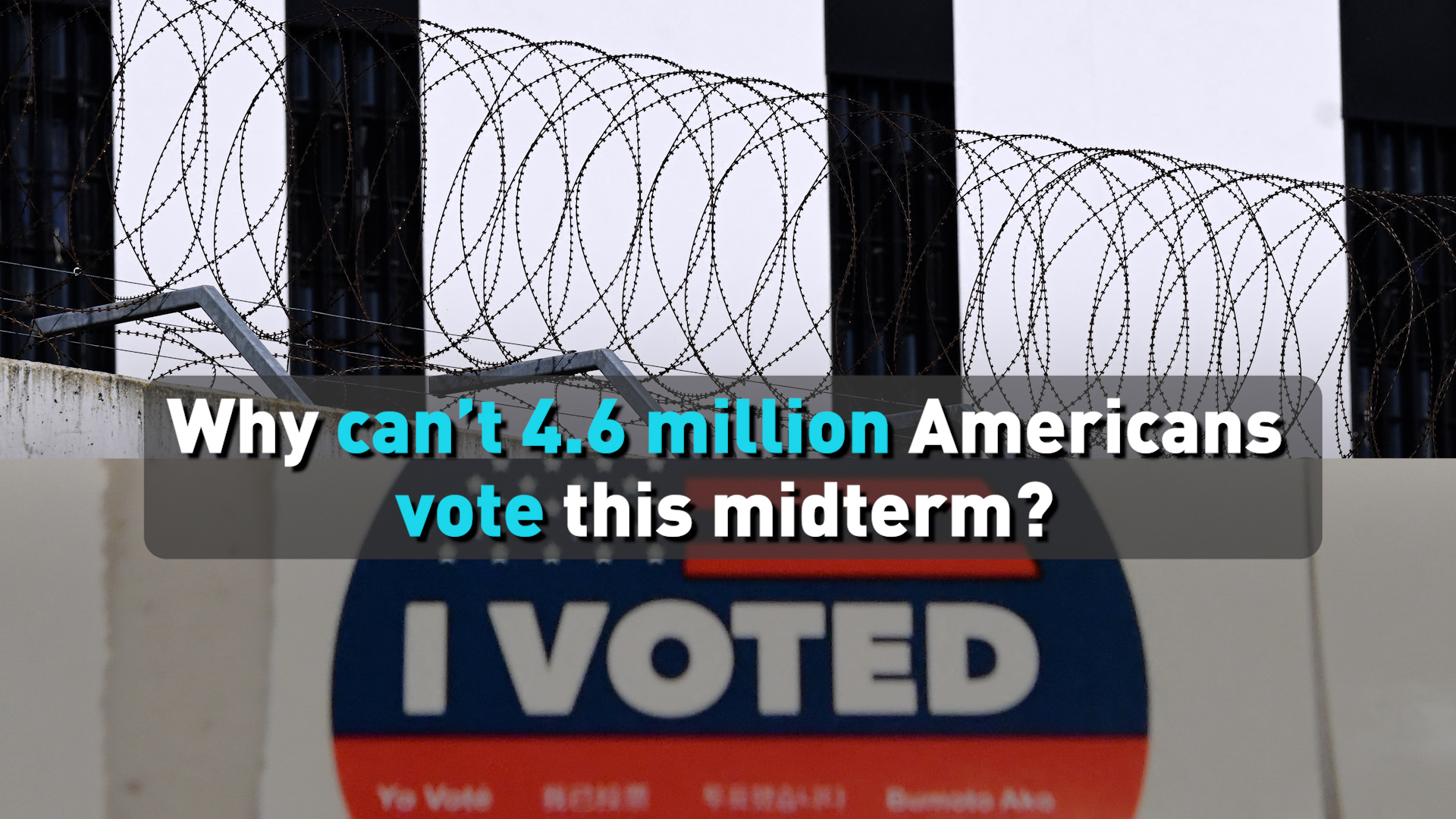01:39

Most states ban people with felony convictions from voting in America. This year, that means about 2% of the voting age population in the U.S. - 4.6 million Americans - will be unable to vote in the upcoming midterm elections, according to a report by The Sentencing Project, a nonprofit that advocates for restoring voting rights to people with prior felony convictions.
The consequences of these bans vary from state to state. The Sentencing Project found state-level disenfranchisement ranges from 0.15% in Massachusetts to over 8% in Alabama, Tennessee and Mississippi.
Currently, 11 states deny voting rights to people after they finish their full sentences, including parole and probation.
Another report from the journalistic nonprofit, The Center for Public Integrity, found an even higher rate of disenfranchisement in Mississippi, determining 10% of adults there are shut out from the voting process, the most in the country.
This includes 130,000 Black voters, 16% of the adult Black population in the state.
Florida’s election law
In-mid August, Florida’s Republican Governor Ron DeSantis announced the arrest of 20 former convicts by the state’s Office of Election Crimes and Security. He said all had voted illegally in the 2020 election.
When bodycam footage was released, several of those arrested had no idea why they were being arrested and were unaware they were being accused of violating state law.
One video from the Tampa Police Department showed officers unable to explain to suspects why they were being arrested, telling some only that they had committed voter fraud.
In 2018, Floridians passed the ballot measure “Amendment 4,” restoring voting rights to felons except those convicted of sex offenses or murder. DeSantis said all 20 were guilty of such crimes.
Racial disenfranchisement
Voting rights advocates say many of these voting restrictions impact Black and Latino voters the most.
The Sentencing Project says Florida’s voting laws make it the leader in disenfranchisement in overall numbers, with more than 1.1 million people banned from the ballots. An estimated 934,500 Floridians have completed their sentences and remain disenfranchised.
Nationwide, one in 19 Black Americans is disenfranchised, a rate 3.5 times that of non-Black Americans, according to The Sentencing Project.
The organization also estimates that at least 506,000 Latino voters countrywide are disenfranchised due to the criminal justice system and laws banning people with felonies from voting, 1.7% of the eligible population. In Arizona and Tennessee, 6% of Latino voters are estimated to be disenfranchised due to these laws.

